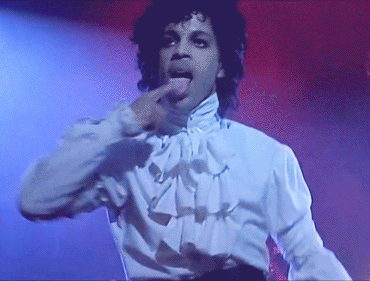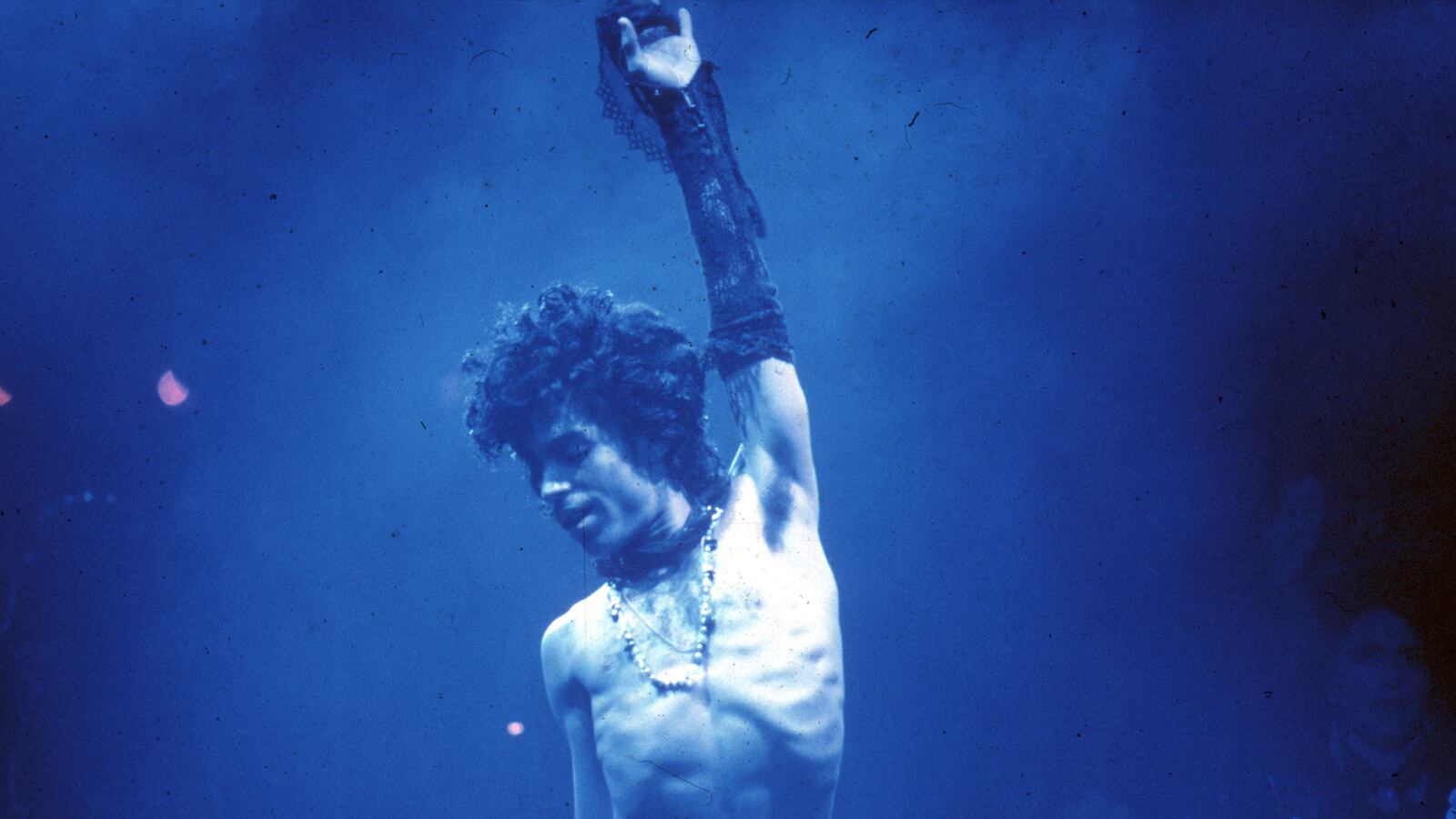Editor's Note: After the publishing of this story, news broke that a federal judge sided with Prince's estate, blocking the release of the 'Deliverance' EP until a May 3 hearing.
Prince’s death on April 21, 2016, was heartbreaking to long-time fans and shocking to the world at large. For close to 40 years, the brilliantly prolific musician had been one of the most formidable, innovative, confounding and astounding artists in music. Prince’s hits influenced a generation, his albums reshaped popular music and his performances affirmed his unbelievable virtuosity and stamina. A legacy is both amplified and simplified in death; we rush to turn complex artists into deified icons, ironing over any contradictions and buffing out much of the criticism we may have felt more comfortable voicing when they were mere mortals. Once they are musical martyrs, it’s hard to remember what you took fault with in their art or their image.
In the case of Prince, his famously relentless pace for creating music may have made for some bewildering detours or lukewarm releases to casual fans, but for those who were truly invested in his musical oeuvre, it’s what defines the richness of his catalog. There’s so much music to explore, so many lesser-celebrated gems like “Sex in the Summer” or “The One U Wanna C.” That scope defines Prince’s greatness as much his hit-making years. But it also means there will always be recordings from his infamous Vault waiting to be pillaged and endlessly repackaged. Nothing sells quite like the mass marketing of postmortem genius.
A posthumous album is often an uncomfortable reality for any die-hard fan; it’s understandable that anyone would want to hear unearthed gems from an artist they hold dear, but it’s just as understandable for anyone to believe rummaging through the vault of a deceased genius is exploitative and greedy. This is commercial art, and it’s distributed via an industry; it’s impossible to believe that any posthumous release is solely an act of tribute—it’s cashing in on a very lucrative commodity.
And over the past year, we’ve seen how various entities—from the executors of his estate to his record labels to streaming sites—all have a stake in a piece of that commodity. And for anyone who is a fan of this artist who refused to be commodified by outside interests, it’s especially painful to know that this will be the new normal for Prince music for years to come.
Unexpectedly, it was announced this week that a new Prince EP called Deliverance would be made available via iTunes on April 21, the one year anniversary of Prince’s death. Almost immediately, Prince’s estate slapped the EP’s co-producer, Ian Boxill, with a federal lawsuit. The suit alleges that the producer, who worked with Prince on the tracks between 2006 and 2008, is violating the terms of his agreement with the late singer and is releasing this music “unauthorized.”
“The Estate of Prince Rogers Nelson is aware that Mr. George Ian Boxill, in conjunction with Rogue Music Alliance, has issued a press release announcing an intent to distribute previously unreleased Prince master recordings and musical compositions,” said the estate via statement.
“Like the other engineers that had the opportunity to work with Prince, Mr. Boxill signed an agreement, under which he agreed (1) all recordings that he worked on with Prince would remain Prince’s sole and exclusive property; (2) he would not use any recordings or property in any way whatsoever; and (3) he would return any such recordings or property to Prince immediately upon request. Mr. Boxill did not comply with his agreement. Instead, Mr. Boxill maintained copies of certain tracks, waited until after Prince’s tragic death, and is now attempting to release tracks without the authorization of the Estate and in violation of the agreement and applicable law.”
Whether or not this will hamper the EP’s official release remains to be seen. But the music is engaging, if not altogether remarkable. Most of the material on the Deliverance EP is from around the time Prince was releasing 3121 and Planet Earth and it sounds like it: heavy guitar pyrotechnics and band-centric jams. But the songs feel a bit freer than much of those albums, and there is obviously the overarching religiosity made apparent in the title track.

“Deliverance” is a bluesy anthem, with a guitar solo that reaches for operatic heights against a wave of choral voices. It’s a great record that offers the umpteenth example that Prince was still excited by guitar flourishes even after decades of pushing himself on the instrument. Thematically and musically, it sets the tone for the rest of the project and is virtually the only standalone track on what is essentially a suite of spiritual funk-rock and grandiose pop.
Sitting somewhere between War and Joe Walsh, “I Am” features supercharged riffage, and an undeniably funky guitar performance. It’s one of the catchiest songs in Prince’s latter-day repertoire, with its exuberant “hoo-hoos,” another great guitar solo and a heavy dose of plucky swagger delivering Prince’s fire and desire. Like contemporaneous Planet Earth single “Guitar,” Prince is relishing the opportunity to showcase his chops. The directness of the evocative Biblical lyrical notwithstanding, it’s not anything groundbreaking for the artist, but a lot of the best of 2000s Prince was the height of his craft and the breadth of his musicality. Both are masterfully showcased here—as things segue into “Touch Me.”
A mid-tempo groove built atop a gorgeous synth bed, with some truly beautiful acoustic licks accenting the synth strings, “Touch Me” is feathery-light. Prince coos “reach out and touch me” in a vocal performance that recalls previous delicate classics like “I Wish U Heaven” and “The Most Beautiful Girl in the World,” with hard-charging electric guitar leads building the song towards its apex and seguing seamlessly into the cheeky “Sunrise Sunset.”

Heavy on the kind of camp Prince had embraced on songs like 1992’s “3 Chains O’ Gold,” “Sunrise Sunset” is the most faux-conceptual song here and the shortest, mostly serving as a series of musical shifts. It doesn’t work as much more than a transition. “No One Else” follows, with the kind of chugging strut that Prince could do in his sleep. The least explicitly religious moment on the EP, there’s a great, dark song that seems to not be fully realized; it’s a great mood but a song that’s searching for a place to go.
A second version of “I Am” closes things in redundant fashion; it’s basically the same song with additional jamming. It’s not a terrible decision to add a fuller version of what could be the best song here, but with very little discernable difference between the two records, having two versions feels like padding.
The litigation provides a dramatic backdrop for the release, which will undoubtedly benefit from the publicity surrounding Prince one year after his untimely death. Whether or not this is tribute or cash grab depends on who you ask, but Deliverance isn’t a bad release. The conceptualism works and the strongest songs here are on par with some of his best post-Musicology tracks. But one hopes that forthcoming Prince releases have a bit more to offer and a little less legal drama. Cynicism aside, there’s a plethora of good-to-great music waiting to be heard; it would be a shame if every glimpse the public gets of that music comes shrouded in questionable motives and legal sparring. Prince deserves better than that.






